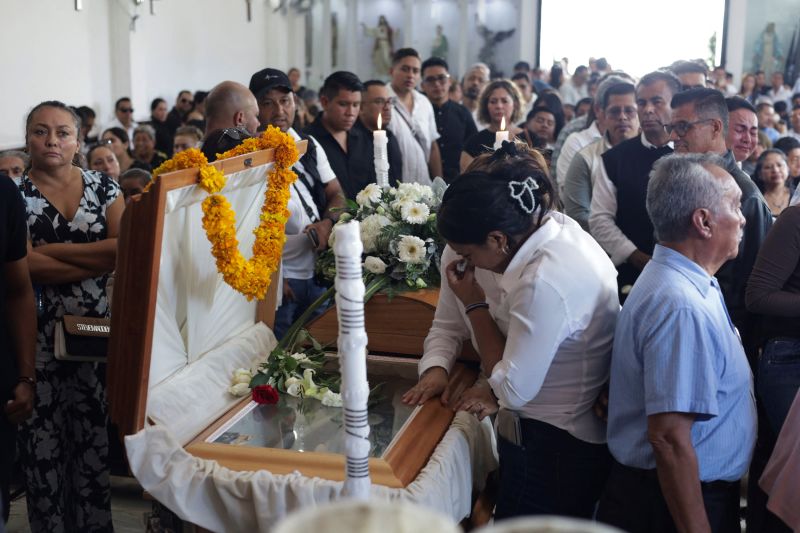The mayor of a crime-ridden city in Mexico has been killed less than a week after taking office, the latest in a string of violent attacks targeting politicians in the country.
The killing of Alejandro Arcos, who took office as the mayor of Chilpancingo on October 1, comes just days after the city government’s secretary Francisco Tapia was shot to death, and has renewed concerns over security in a country that recently held its biggest and most violent general election in history.
On Monday, Mexico’s newly elected President Claudia Sheinbaum called Arcos’ killing “unfortunate” and said that her security cabinet would on Tuesday explain “with more details” the actions being taken to address the nation’s security problems.
“We will roll out the general strategy. We will work in some states with more presence, intelligence, and investigation in collaboration with the governors,” Sheinbaum said during her daily press conference.
Chilpancingo is the capital of Guerrero, a state with a reputation for violent crime which is also home to the tourist hot spot Acapulco.
The state governor Evelyn Salgado has condemned the killing and vowed to hold to account those responsible. “His loss is mourned by the entire Guerrero society and fills us with indignation,” Salgado wrote on X.
However, the violence facing Mexican politicians stretches far beyond Guerrero, as was demonstrated by the historic June 2 election that took Sheinbaum to power.
With 20,000 electoral positions up for grabs, the scale of bloodshed committed by those attempting to influence the vote was unprecedented.
During campaign season, at least 34 political candidates were assassinated by criminal organizations. And the violence did not stop there. Just hours after Sheinbaum’s election, the woman mayor of a town in western Mexico was shot dead.
According to a report by Integralia Consultants, criminal organizations in Mexico center politically motivated attacks at the municipal level because mayors can offer them impunity due to their links with law enforcement and the local economy.
It says that criminal gangs often finance campaigns during election season, intimidating candidates and violently intervening to compel politicians to cooperate with them.

